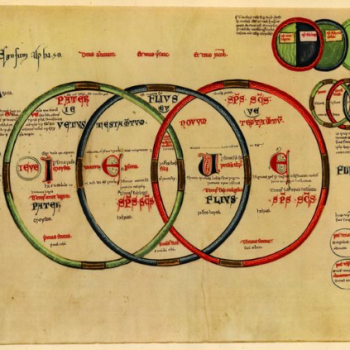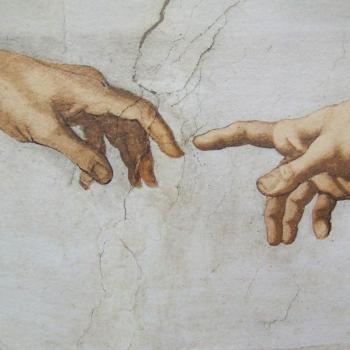
"What good is it, my brothers and sisters, if someone claims to have faith but has no deeds? Can such faith save them? Suppose a brother or a sister is without clothes and daily food. If one of you says to them, 'Go in peace; keep warm and well fed,' but does nothing about their physical needs, what good is it? In the same way, faith by itself, if it is not accompanied by action, is dead." - James 2:14-17
This passage from the first century Epistle of James is a profound reflection on the relationship between faith and deeds. It challenges believers to examine the authenticity of their faith, emphasizing that genuine faith is not merely an intellectual acknowledgment but should manifest in tangible actions.
Catholic Perspective
The Catholic Church teaches that faith and works are intrinsically linked. While faith is the foundation of our relationship with God, it is through our deeds that this faith is made manifest. The sacraments, especially the Eucharist and Confession, are avenues through which believers receive grace to perform good deeds, aligning their actions with their faith. While the Catholic Church has traditionally emphasized the need for sacraments, and even their salvific nature, the Church holds that sacraments are simply vehicles to God’s grace. The sacraments are not what save you. Only the grace of God can do so. But, in harmony with James’ declaration, Catholicism has traditionally claimed that one must engage in works to qualify for God’s unmerited grace.
The Church of Jesus Christ of Latter-day Saints (or “Mormon”) Perspective
For members of The Church of Jesus Christ of Latter-Day Saints, faith is a principle of action. While faith in Jesus Christ is central, it is through righteous deeds that individuals show their commitment to the gospel. The LDS teachings emphasize that faith and works go hand in hand in the journey towards eternal life. Grace saves, but righteous efforts (or “works”) enable the believer to vouchsafe (or lay hands upon) God’s grace.
Evangelical Perspective
Evangelicals believe that salvation is by faith alone, through grace alone, in Christ alone. However, James' message resonates with the evangelical belief that genuine faith will inevitably produce good works. While works cannot earn salvation, they are evidence of a living faith. Hence, Luther is said to have taught, “Good works do not make a good man, but a good man does good works.”
Modern Christian Perspective
In contemporary Christian thought, there's an understanding that while faith is a personal relationship with Christ, it should also influence one's actions in the world. This perspective emphasizes the importance of living out one's faith in daily life, making a positive impact on society–not out of fear of going to hell, but out of love for God and all of his children.
Progressive Christian Perspective
Progressive Christians often focus on the social implications of faith. For them, faith is not just about personal salvation but also about working towards social justice, equality, and environmental stewardship. James' emphasis on deeds aligns with the progressive call to action in the world. For many Progressive Christians, James’ words suggest that you cannot truly be Christian if you are not concerned about social justice, equality, and related issues.
Islamic Perspective
While the Quran does not directly reference this passage from James, the concept of faith and deeds is integral to Islamic teachings. The Prophet Muhammad (PBUH) said, “No one’s works will get him into...Paradise.” He added: “None of you will be saved by [your] acts.” Muslims believe that faith (or “iman”) must be accompanied by righteous deeds (or “amal”) to be meaningful. The Five Pillars of Islam are a testament to this belief, where faith is put into action.
Pagan Perspective
Many pagan traditions emphasize the importance of living in harmony with nature and the world around them. While the concept of faith might differ, the idea of aligning one's beliefs with actions, especially in terms of respecting the earth and its cycles, resonates with many pagan beliefs. A pagan who ignores the world, the spirits, and certain rituals, is hardly living the life of paganism–which incorporates “works” into its system of beliefs, regardless of the pagan tradition one belongs to.
Hindu Perspective
In Hinduism, the Bhagavad Gita speaks of the importance of selfless action (karma yoga). While faith and devotion are essential, it is through selfless deeds that one can attain spiritual growth and liberation. Much of Hindu belief revolves around works–whether those consist of visiting a temple, making an offering at a home shrine, engaging in bhakti (or devotion to a specific deity), or trying to improve the way one lives (in order to shed karma). Hinduism, in various ways, would agree with James’ declaration.
Buddhist Perspective
Buddhism teaches the Eightfold Path as a guide to ethical and mental development, leading to enlightenment. Right action, one of the steps, emphasizes the importance of deeds in line with moral and ethical principles. While not all Buddhist traditions put as much emphasis on the Eightfold Middle Path as does the oldest Buddhist tradition–the Theravada denomination; nevertheless, because Buddhism focuses so heavily on non-attachment and mindfulness, James’ works about the connection between faith and works would very much be at home in traditional Buddhist approaches to salvation and lived religion.
Conclusion
James 2:14-17 serves as a powerful reminder of the interconnectedness of faith and deeds. Across various religious and philosophical traditions, the message is clear: genuine faith is not passive but actively influences one's actions and interactions with the world.
9/6/2023 6:34:18 PM










